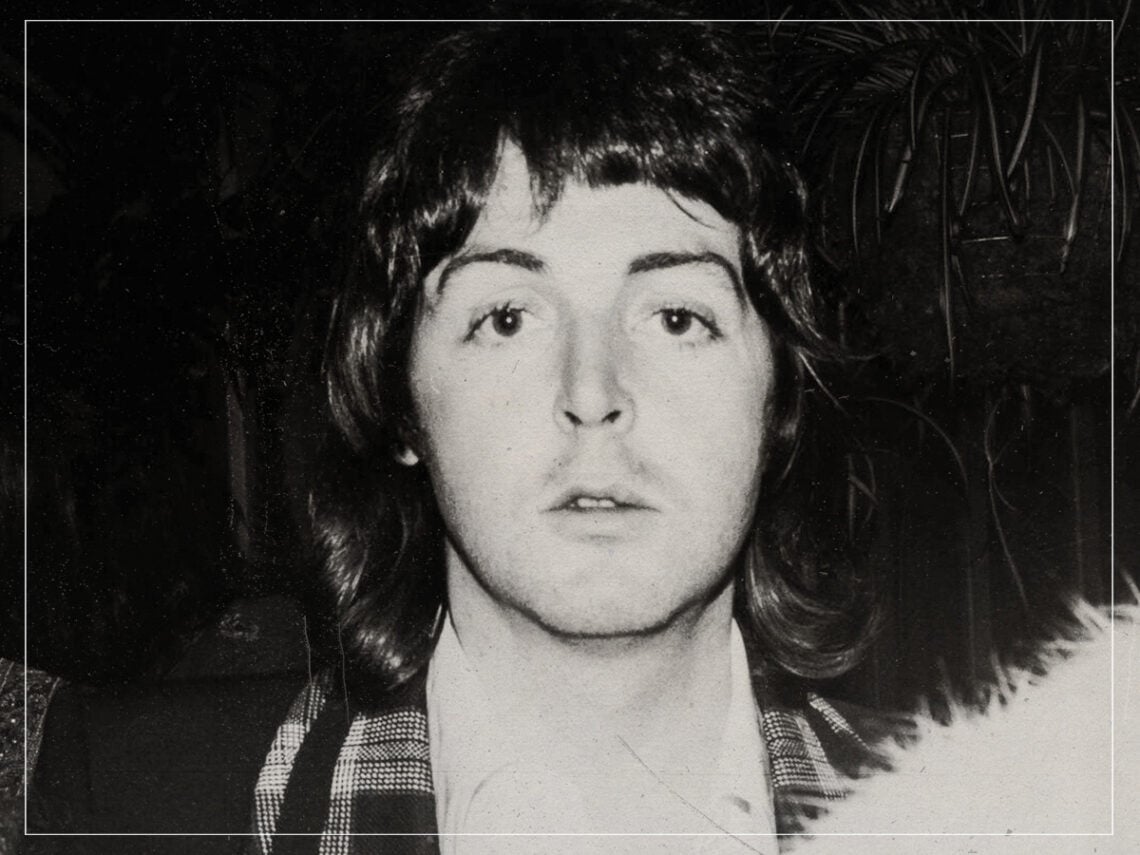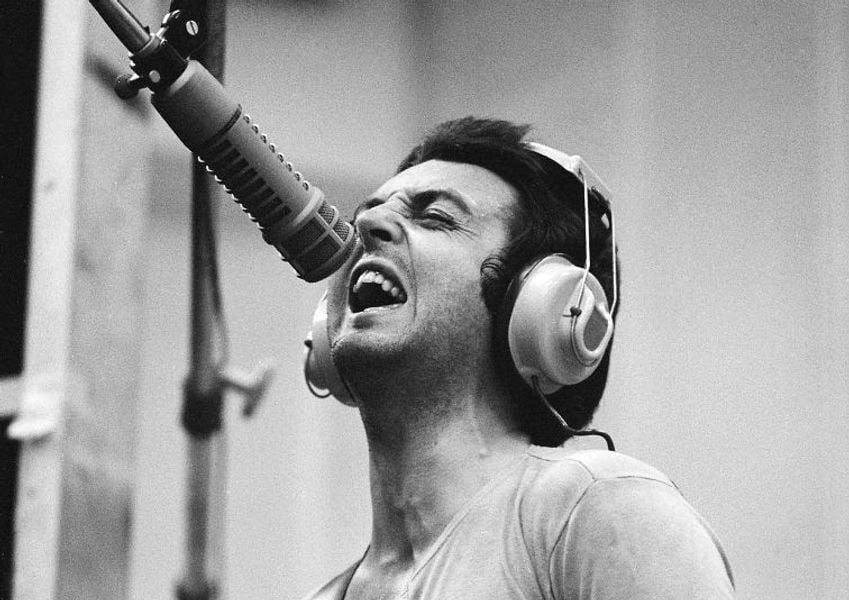
(Credits: Far Out / Alamy)
Tue 27 May 2025 19:05, UK
“I don’t blame Phil Spector for doing it but it just goes to show that it’s no good me sitting here thinking I’m in control because obviously, I’m not.” — Paul McCartney, The Beatles
To try and force your favourite artist into picking one of their albums to hold up as their ultimate version of their work can sometimes be like getting blood out of a stone. In the case of The Beatles songwriting maestro, Paul McCartney, we’ve luckily had nearly six decades of critics and journalists pestering Sir Paul for his favourite record by the Fab Four, so that all the legwork has been done for us. But what about the album he likes least? For every good moment, there is usually a bad one, and The Beatles are just the same.
During a revealing 1991 interview, McCartney suggests that he had a love for all the albums he, John Lennon, George Harrison and Ringo Starr made together. But he did confess that his favourite was the iconic concept album from 1967, Sgt. Pepper’s Lonely Hearts Club Band an album released on June 1st, 1967. The singer revealed it was the concept behind the record that he feels was really engaging, and naturally, because he was meticulously involved in its creation. He said, “I’d pick Sgt. Pepper’s, meself, because I had a lot to do with it” noting the album’s importance to his own creative evolution. All The Beatles’ albums were collaborative efforts, contributing different songs each, but there was no doubt that McCartney had this record by the lapels.
Sir Paul McCartney confirmed similarly in an interview from 1990, where he said: “If records had a director within a band, I sort of directed Pepper.” The record’s positive tone, affirmed in songs like ‘Getting Better’ and ‘With A Little Help From My Friends’ are all down to McCartney and his newfound creative leadership. He had assimilated into the role of leader more easily than some of the other band members had wanted. Still, the record is perhaps one of their most important.
It’s a stepping stone on the band’s pathway to icon status that is founded in sadness. After the band’s manager, Brian Epstein, died, the group needed a focus, and Macca provided it. John Lennon had operated as the group’s leader for some time, but as the 1960s progressed, Lennon’s head was turned away from the studio and toward society’s stage. With the album so deeply entrenched in McCartney’s iconography it’s not unexpected that he would adore it. This decision to pick McCartney’s creation as his favourite may also hint at which was the singer’s least favourite.
 The Beatles (Credits: Far Out / Alamy)
The Beatles (Credits: Far Out / Alamy)
Let It Be was the final album The Beatles ever released, but the songs on it were largely compiled from off-cuts and previous incarnations that had fallen by the wayside. Though the album is certainly worthy of being considered one of the band’s best records, there was something about it that Paul McCartney really didn’t like—Phil Spector. His influence on the record would push McCartney over the edge.
The infamous producer, who died a few years ago, has had his place in history forever tarnished by his eccentric, violent and sociopathic tendencies. While one certainly couldn’t lay much of that at the producer’s feet on The Beatles album, Spector still represented everything wrong with the album for McCartney. In fact, one song perhaps typifies how Macca felt about the whole album.
‘Long and Winding Road’ was a song McCartney had created with a clear but simple ethos. It was a piano ballad and demanded to be treated as such. However, as The Beatles’ split behind the scenes grew impossible to work with, the song was repurposed by John Lennon and Phil Spector and turned into something entirely different.
The song, featured on the band’s final record Let It Be, is largely considered one of the final moments the group were actually caught on tape. As most fans will tell you, most of Let It Be was recorded before their penultimate record Abbey Road, but this song had been finished after that record had come out and in less than pleasing circumstances. As John Lennon put it in 1980 when speaking with David Sheff, “He had a little spurt just before we split. I think the shock of Yoko Ono and what was happening gave him a creative spurt, including ‘Let It Be’ and ‘Long And Winding Road’, ’cause that was the last gasp from him.”
McCartney said of the track in Many Years From Now: “I was a bit flipped out and tripped out at that time. It’s a sad song because it’s all about the unattainable; the door you never quite reach. This is the road that you never get to the end of.” The track followed a similar recording process as much of The Beatles’ back catalogue.
 Paul McCartney (Credit: Linda McCartney)
Paul McCartney (Credit: Linda McCartney)
Usually arriving as part of a recording session and under the arm of a single member of the band, the group would all pitch in to try and get it to a recordable point, then with the help of George Martin — the band’s legendary producer — they would piece it together and get it down on tape. It’s a simple process that worked for the majority of their output. But for ‘The Long and Winding Road,’ things went a bit differently.
However, with the band falling apart at the seams, Spector was put in charge of releasing Let It Be, which meant overdubbing plenty of songs to achieve his famed ‘Wall of Sound’ production. “On ‘The Long And Winding Road’ he wanted to overdub orchestra and choir, but there weren’t the available tracks on the tape,” remembers engineer Brian Gibson when speaking to Mark Lewisohn for his book on the band. “So he wiped one of Paul McCartney’s two vocal tracks in order to put the orchestra on.”
It sent McCartney to the papers with his disgust at how Spector had changed the songs. He told the Evening Standard in 1970: “The album was finished a year ago, but a few months ago American record producer Phil Spector was called in by John Lennon to tidy up some of the tracks. But a few weeks ago, I was sent a re-mixed version of my song ‘The Long And Winding Road’, with harps, horns, an orchestra and women’s choir added.
“No one had asked me what I thought. I couldn’t believe it,” continued McCartney. “I would never have female voices on a Beatles record. The record came with a note from Allen Klein saying he thought the changes were necessary. I don’t blame Phil Spector for doing it but it just goes to show that it’s no good me sitting here thinking I’m in control because obviously, I’m not. Anyway, I’ve sent Klein a letter asking for some of the things to be altered, but I haven’t received an answer yet.”
The album was released with Spector’s ‘The Long and Winding Road’ cut still present, something George Martin took umbrage with: “That made me angry – and it made Paul even angrier, because neither he nor I knew about it till it had been done. It happened behind our backs because it was done when Allen Klein was running John. He’d organised Phil Spector, and I think George and Ringo had gone along with it. They’d actually made an arrangement with EMI and said, ‘This is going to be our record.’”
Over the years, Paul McCartney has been painted as many different villains in The Beatles’ story. The singer has been cast as the anti-Lennon, a commercially driven artist and the kind of pop star that will always look to be in the limelight. But the truth is actually more aligned with the idea that McCartney is simply a devoted performer and creator — one that doesn’t take too kindly to being overruled.
Let It Be will always be more famous for being the final release from the most famous band in the world rather than the songs on it. However, to overlook the record as the embers of a once roaring fire is a serious mistake. The record has several songs that are worthy of ultimate Beatles pantheon including the rocky ‘Get Back’, ‘I, Me, Mine’, ‘Across the Universe’ and of course the titular song ‘Let It Be’. It means the LP should certainly be considered one of their best, even if it doesn’t sit well with Paul McCartney.
Related Topics
Subscribe To The Far Out Newsletter
